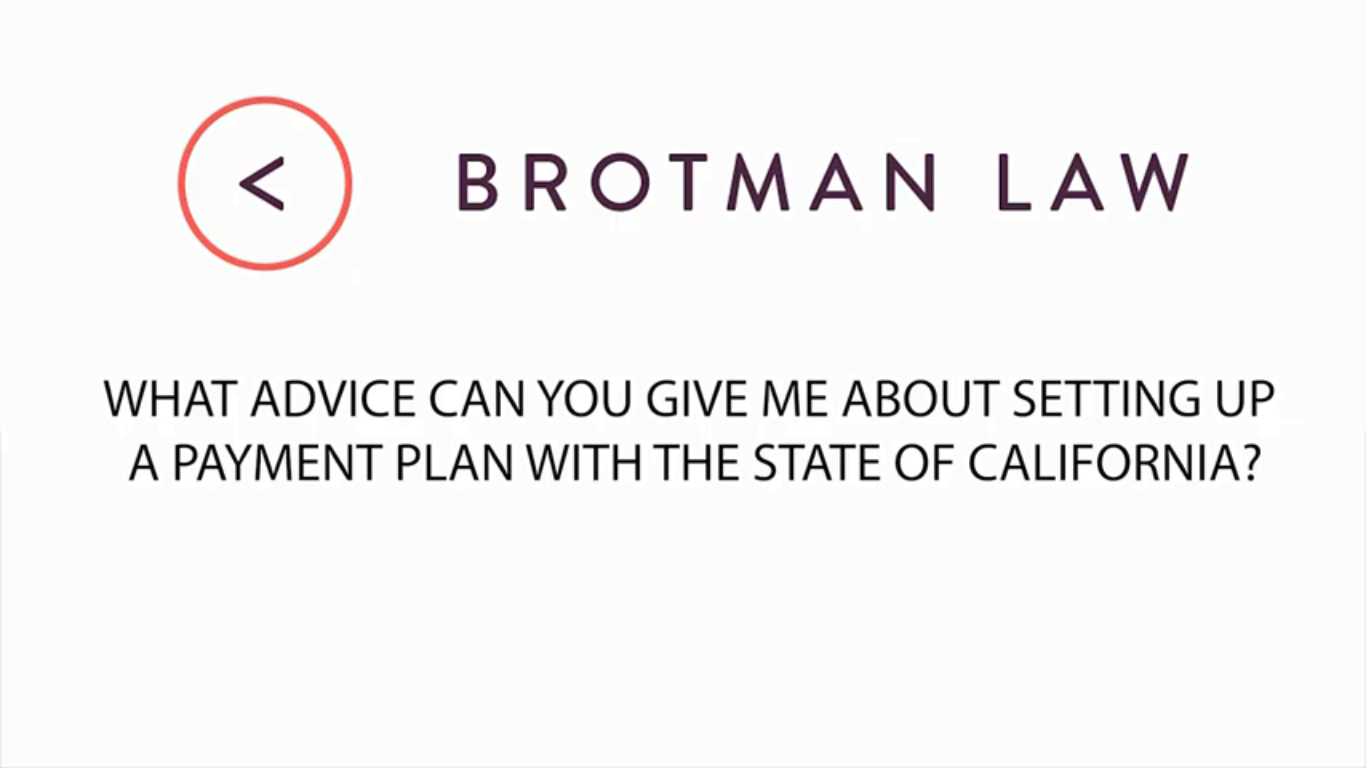So the first thing that I would tell you about setting up a payment plan for delinquent tax liability is California is going to be much more aggressive in payment of that liability than the IRS. One, California is pretty cash-strapped so the thresholds for the seriousness of a certain liability are a lot lower than they are at the IRS level. So for example if you owed $20,000 to the IRS it’s not really that huge of a deal. The IRS has hundreds of thousands of people that owe only $20,000. With California, $20,000 liability will get you into what’s called the complex account recovery unit. So California takes smaller liabilities much more seriously than the feds do. They’re a lot quicker to assess them, they’re a lot quicker to take collections actions, and they’re a lot more aggressive in their collections actions. One of the problems with dealing with the state of California is everything with the IRS is usually pretty formulaic and it’s regulated by the Internal Revenue manual. California, we will take
the Franchise Tax Board for example, the Franchise Tax Board is the California administrative tax agency that governs income tax. So the Franchise Tax Board has a collections manual but it’s nowhere near as in-depth or as detailed as the Internal Revenue. Maybe because of the lack of detail, there’s a lot more discretion that’s given to the front line collection agents and the managers. So what naturally tends to happen is California tends to squeeze taxpayers a lot harder and they demand more stringent payment terms than the IRS would generally speaking when we have a client that has an IRS liability. And with a Franchise Tax Board liability, oftentimes we’ll deal with this state first knowing that they’re going to be the most aggressive and then we’ll deal with the IRS second. The reason for this is if the state gets their pound of flesh and gets out of this, then we can probably negotiate a much easier resolution with the IRS but just know that the state is going to put you under a tougher financial standard. They’re going to be a lot harder to deal with. The payment plan timelines that they’re requesting are going to be a lot shorter and they’re not going to be as flexible with their deadlines.
So when we do a state payment plan, they’re generally pretty quick. You know it’s get us documents within a week or get us documents within a few days turnaround and a decision very quickly and there’s usually a lot of pressure that goes along with that. So if you’re dealing with the state, just know that you might be in for a little bit of a rough ride. In fact one of the reasons why our practice here at the firm is centered around California tax issues is even though people have liabilities with the IRS that are much much greater than what their state liabilities are, there’s more pain at the state level. The systems that I’ve talked about in the past and the lack of a judicial check on the administrative tax agencies in California creates a lot of problems for people. It’s very difficult setting up collections so my recommendation for payment plans is when you’re dealing with the state, bring somebody in to help you negotiate particularly if you start having problems with your representative. This is particularly true for any state liability that’s $20,000 or over. It’s going to involve the complex account recovery unit at the Franchise Tax Board or any liability at all that really involves the Employment Development Department which administers payroll taxes or the CDTFA in particular, which administers sales taxes. The CDTFA is very aggressive and very inflexible particularly for active businesses. So anytime that you have a business liability with California in particular, it’s very difficult to get those negotiated. So my recommendation is that you speak with an expert on the subject. You get an attorney involved and you really work on protecting the cash flow of the business so that California doesn’t come in and just drain everything out of the businesses operating account. Or from an individual perspective you don’t want to commit to a payment plan that’s going to be too aggressive and that you’re going to struggle to keep up with. So you know again taking the consideration in your own situation, taking into consideration your family situation, how much you need and then negotiate collections resolutions that satisfy the interests of the government but still protect you, your personal cash flow and what you need to live.
